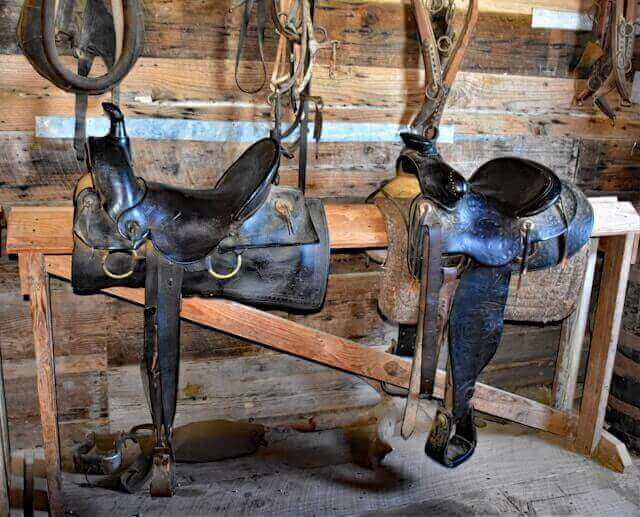Equestrian sports encompass a range of activities that require not just physical skill but also a deep connection with the horse partner. This unique combination of sport and partnership necessitates a comprehensive understanding of horse management, training techniques, and the equipment needed to ensure safety.
The lifestyle is all-encompassing, often requiring personal sacrifices and a substantial investment of time and resources. However as discussed by Sarah Warren, the rewards are equally noteworthy, offering satisfaction and a strong sense of accomplishment from both competitive successes and the personal bond formed with the horses.
Equestrian Passion and Lifestyle
Equestrianism is not just a sport; it’s a way of life that requires dedication and a passion for horses. Those who pursue this path often find that their entire life revolves around their equine partners. From early-morning rides to late-night stable checks, the life of a devoted equestrian is immersed in horse care and training. This connection to their animals goes beyond activities; it’s a bond that shapes their daily life and personal identity.
Maintaining this lifestyle requires a blend of passion and practicality. Avid equestrians integrate their love for riding into every aspect of their lives, which often includes a rigorous schedule of training, grooming, and competitions. The commitment extends beyond the individual to include family members and friends who support this demanding but fulfilling pursuit. The integration of equestrian activities into daily life not only develops a unique set of skills but also fosters a resilient character capable of facing the various challenges that come with managing and caring for horses.
Training Techniques and Discipline
In the world of equestrian sports, the harmony between rider and horse is crafted through meticulous and disciplined training techniques. Each session adds a layer to the foundation of trust and understanding necessary for both to perform as a cohesive unit. Training methods vary widely, from classical dressage to modern show jumping, each tailored to enhance the physical capabilities and mental alertness of the horse while simultaneously improving the rider’s skills.
Discipline is the cornerstone of success in equestrian pursuits. It influences not only the physical training sessions but also the mental preparation and recovery of both horse and rider. Adhering to a structured training regimen, riders develop a keen awareness of their bodies and the subtle cues of their horses. This ensures that both are prepared for the rigors of competition and the demands of recreational riding.
Overcoming Challenges and Celebrating Success
The path of an equestrian is strewn with challenges, ranging from physical demands and financial commitments to emotional trials, such as dealing with injuries or losses in competition. Navigating these hurdles requires a resilient spirit and an unwavering commitment to the sport. The journey, while often arduous, is marked by moments of triumph that make the challenges worthwhile. Success in the ring, whether at local shows or international championships, brings a sense of accomplishment that fuels the passion for continued pursuit.
Celebrating these victories, whether they be personal milestones in training or winning titles, adds a layer of joy and satisfaction to the equestrian lifestyle. These moments are not just personal achievements but also celebrations of the bond between horse and rider.
Essential Equipment
Selecting the right equipment is crucial in every sport, and in horseriding, the saddle holds a major importance. It’s the primary point of contact between rider and horse, making its fit and quality vital for both comfort and performance. A well-chosen saddle enhances the rider’s control and the horse’s freedom of movement, contributing significantly to their ability to perform at their best in training and competitions.
Guidance from Mentors and Coaches
The role of mentors and coaches in equestrian sports cannot be overstated. These experienced individuals provide recommendations that shape the careers of budding equestrians, imparting knowledge that only comes from years of direct involvement in the sport. Under their guidance, riders learn techniques and the ethos of equestrianism, which includes sportsmanship, stewardship of animals, and the intricate balance of assertiveness and empathy that defines successful horsemanship.
Mentors also play a critical role in helping riders navigate the sport’s ups and downs. Their insights help refine a rider’s technique, build confidence, and acquire a deeper understanding of equine behavior, which is indispensable in achieving excellence.
Maintaining Passion and Achieving Excellence
The journey towards excellence in equestrianism is a long-term commitment that requires passion and striving for improvement. Riders who excel in this sport do not rest on their laurels but are always in pursuit of the next level of proficiency. This relentless drive is fueled by a passion that permeates every aspect of their lives, compelling them to overcome obstacles and refine their skills.
Achieving excellence in equestrian sports involves physical training, mental strength, and an indomitable spirit. It’s a pursuit that rewards not just ribbons and accolades but also personal growth and bonds formed between horse and rider. Each step forward is a testament to the dedication and love inherent in this unique and challenging sport.


